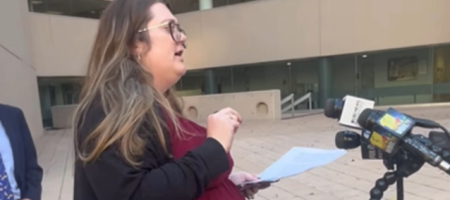Medical Care for Prisoners
Were You or a Loved One Harmed as a Result of Being Denied Medical Treatment in Jail or Prison? Call Our Law Firm Today.
The Eighth Amendment of the U.S. Constitution guarantees individuals who have been convicted of a crime fundamental rights. Inmates have the right to be free from cruel and unusual punishment with concern to their conditions of confinement and treatment. Indifference to a prisoner’s illness or injury constitutes cruel and unusual punishment.
Although the Eighth Amendment protects prisoners, there are studies and reports that indicate that prisoners do not have sufficient access to medical care. When this happens, inmates or their families may benefit from discussing their circumstances with a civil rights attorney.
If you or a loved one was denied medical care or suffered an injury due to medical neglect while in a jail or prison, contact Grant & Eisenhofer P.A. Our civil rights attorneys take cases nationwide to help individuals harmed due to civil rights violations.
What Kind of Healthcare Is Covered?
Prisoners should be provided with necessary health care including:
- Preventative
- Routine
- Urgent
- Emergency care
Inmates may suffer from chronic medical conditions such as persistent heart or kidney problems, diabetes, or asthma. They may also suffer from common viral infections, influenza or injuries.
Throughout the duration of a prisoner’s incarceration, it is the correctional facility’s duty to provide adequate medical care. This duty begins upon a prisoner’s admission. When a prisoner is admitted, the correctional authorities will perform an initial screening. This screening should help the correctional facility detect any issues that need immediate attention, such as:
- Illness
- Communicable diseases
- Mental health problems
- Drug or alcohol intoxication or withdrawal
- Ongoing medical treatment
- Risk of suicide
- Disabilities
Can an Inmate Be Denied Medical Treatment?
Generally, if medical treatment is necessary, it cannot be denied to an inmate. The Constitution requires prison officials to provide adequate medical care to prisoners in their facilities. When an inmate is denied medical care or treatment in jail or prison, the correctional officers may be violating the inmate’s civil rights and the Eighth Amendment.
In the landmark case of Estelle v. Gamble, 429 U.S. 97, 104-105 (1976), the United States Supreme Court concluded that “deliberate indifference to serious medical needs” of an inmate is an unnecessary and willful infliction of pain.
Medical care that is necessary or for serious medical needs should be provided during the inmates period of imprisonment regardless of:
- a prisoner’s ability to pay
- the duration of the prisoner’s incarceration
- the size of the correctional facility
Prisoners have the right to be free from inhumane punishment or conditions that violate basic human dignity. As such, if you or a loved one were injured or suffered an illness while incarcerated and did not receive proper care or treatment, you should consult with a civil rights attorney immediately. An experienced attorney will help you understand your legal rights.
Were You Denied Medical Care in Prison? Call for a Free Consultation.

Survivors Testify, Demanding Justice and Fair Compensation in Baltimore Archdiocese Bankruptcy Case


